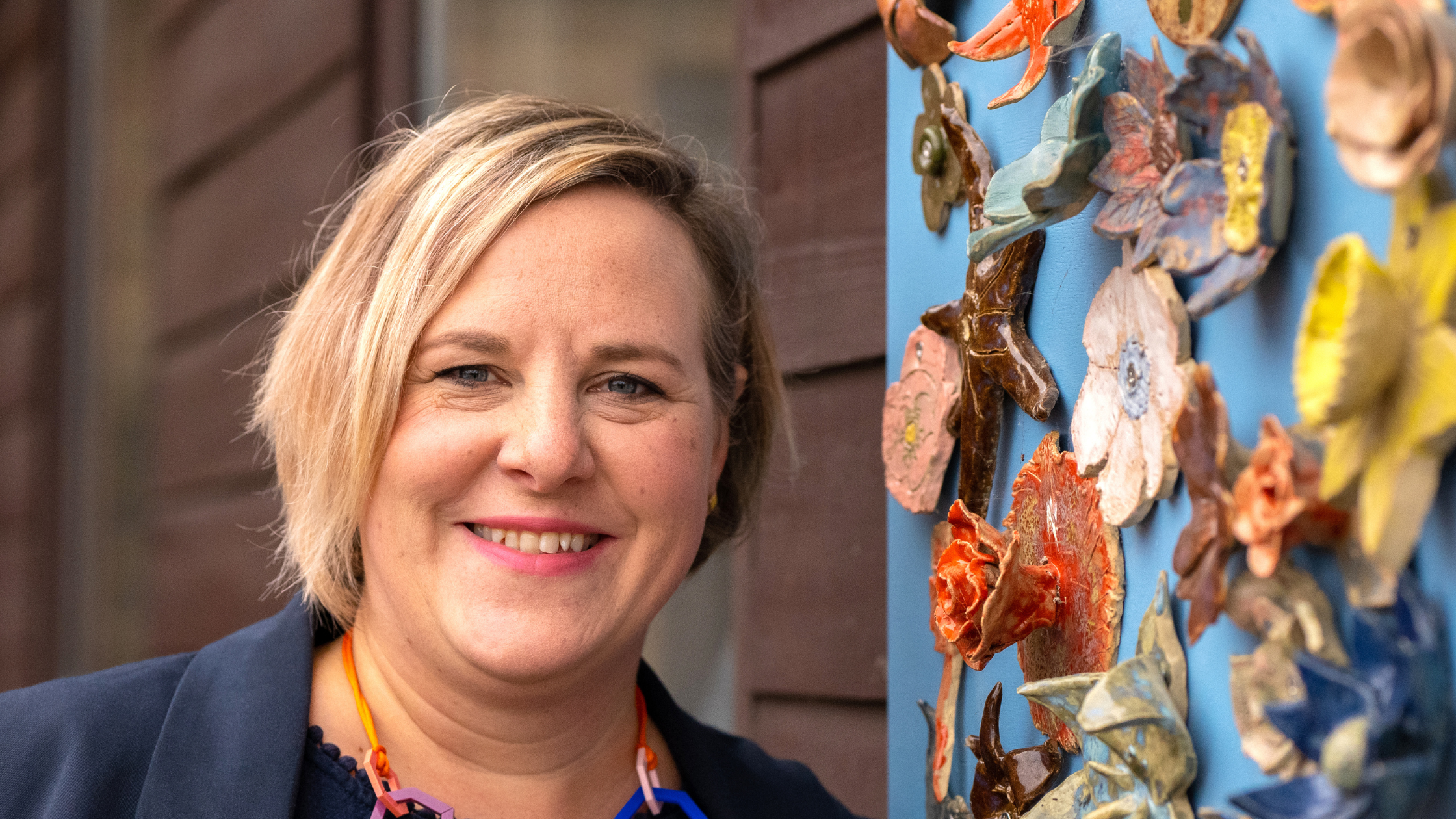"I have developed an array of new skills, opening up the options for what’s next.”
Lucy Davies, Head of Development at Camphill Milton Keynes Communities, talked to us about her experience on the Senior Leader Executive Programme (SLEP).
What attracted you to the Senior Leader Executive Programme?
I had been working with a coach from the Open University, exploring personal growth and future career opportunities. We discussed that I had a breadth of learned leadership experience, but I had few models and methodologies to pull on. Coincidently, I then received an email alerting me that Santander was allowing charities to access their Apprenticeship Levy to attend SLEP. This opportunity formed part of one of my coaching sessions where I was actively encouraged to apply.
How has the ‘Levy Gift’ assisted your organisation/sector?
Our charity could not have justified expenditure for a course like SLEP in this current economy. The Levy Gift took the burden of cost out of consideration, allowing us to focus purely on the personal and professional benefits in attending. The Santander offer was the difference on applying or not applying.
What has been the most enjoyable part of your apprenticeship experience so far?
Being back in a classroom with peers and specialist lecturers has been great; especially with the impact of Covid turning many learning experiences into digital interactions. Getting to know my cohort in person and being part of the modules at the Cranfield campus has been invaluable. The tutors are exceptional and I am learning so much from them.
….and the most challenging?
The academic writing. I write proposals frequently for my role and it has been challenging adapting to the academic style required for our assignments. With academic papers, prior research and reading is essential, and it has taken some practice to ensure I am planning in enough time to allow for meaningful preparation.
What aspects of the programme have contributed most to your confidence as a leader?
With the SLEP apprenticeship we must evidence implementation of the key knowledge and skills we have learnt. This provides me with the authority to get hands-on with strategic information which may have been out of scope of my current role, but the programmes supports me in developing a rounded experience of leading areas more broadly.
What has been the biggest shift in your mindset or strategy as a result of the programme?
Probably that leadership isn’t just for the CEO. We all have the ability to support and lead organisational change from different levels within the organisation. Leadership is a mindset, not a position or a job title.
How has the apprenticeship helped with your own personal development?
I had been struggling with the vision of ‘what next’ for my career. I felt I had learned a lot in my 20+ years of work and was reflecting on my own skillset and what type of roles I had the ability to deliver. Through this course I have developed an array of new skills, opening up ,many more options for ‘what next’.
What networking opportunities from the programme have benefitted you professionally?
I network frequently for my role, however this is quite different. The rest of my cohort are from outside the Milton Keynes area, and I have really enjoyed building relationships beyond my current networks, engaging with individuals from different sectors with national agendas impacting them in different ways. This has helped me develop a broader understanding of the business constraints and opportunities our suppliers and partners might be facing.
Have you had the opportunity to influence or implement changes within your workplace based on what you’ve learned?
Yes absolutely. A core purpose of the SLEP course is that your line manager / CEO agrees to enable you to embed the learning into the workplace. Each module is coupled with a written piece, relating to your own business/organisation, and from that evidence-based assignment it’s possible to implement the learning. I have enjoyed expanding my work outcomes and developing new work strands to enable me to implement the SLEP modules.
How do you balance the demands of the apprenticeship with the responsibilities of your current role?
Apprenticeships require buy-in from your organisations leadership team as it is impactful in terms of time commitment. My workload is already self-managed and so I sequence it in as I would any piece of work.
What tips would you share with new apprentices joining the programme, to ensure that they were successful?
New applicants shouldn’t need tips as the application process is very clear and intuitive, but digging out your GCSE certificates in maths and English is quite important so have a long hard think about where you might find them!
Is there anything you wish you had known about the programme or expectations before starting the apprenticeship?
I don’t think you can comprehend the workload until you are in it, but it’s only when you’re completely into the programme can you really appreciate how the course will impact on your day-to-day. The suggestion is one day per week but with assignments and course attendance, it is more like two days. However, the enrichment has been worth the investment of the time and effort.
Discover more about the Cranfield Level 7 Senior Leader Executive Programme:






